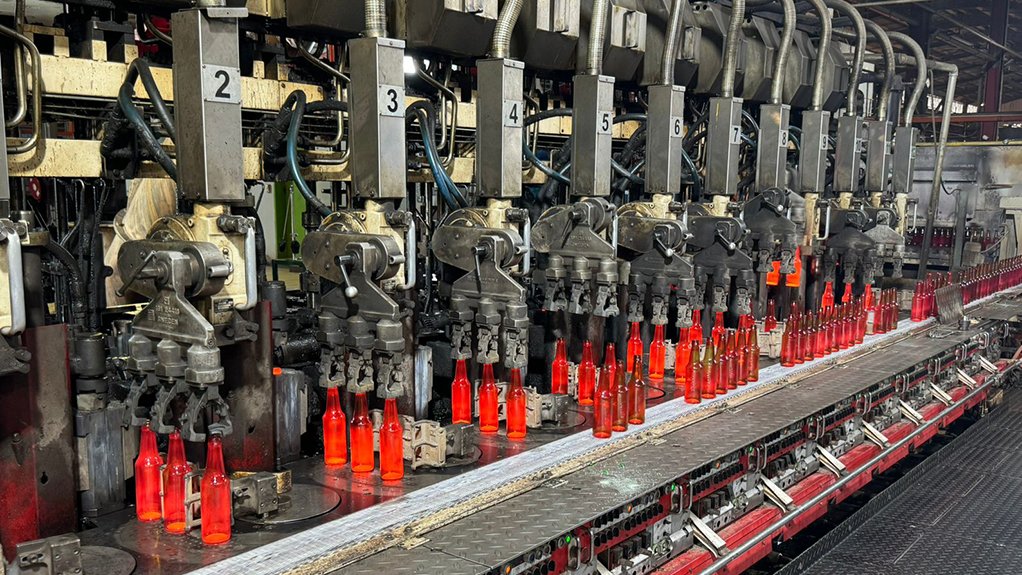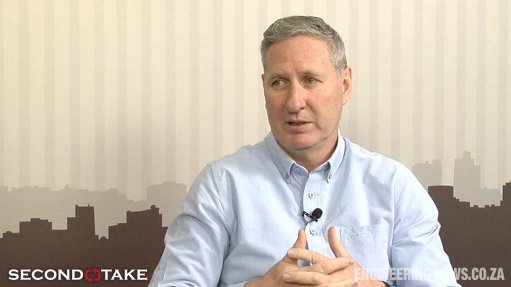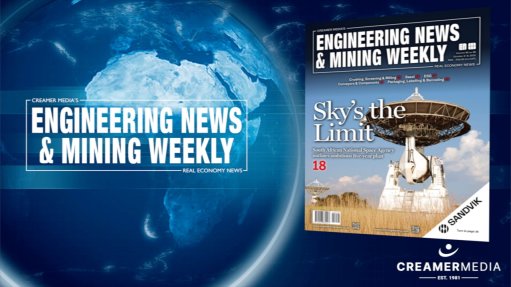Manufacturers globally are concerned about market instability
Manufacturers are concerned because of the volatility, uncertainty, complexity and ambiguity in global, regional and local markets, World Manufacturing Foundation (WMF) scientific VP Professor Dr David Romero has said.
Speaking at the Manufacturing Indaba conference and exhibition, in Sandton, on October 22, he shared some insights from research conducted by the WMF geared towards helping manufacturers navigate the current economic climate and its evolution to 2030.
To address the concern of manufacturers, he said the WMF had considered four scenarios.
The first is ‘Green Transformations as a Growing Agent for the Future of Manufacturing’. This scenario focuses on making manufacturing more sustainable by applying circular economy principles and developing green markets to create a sustainable industrial development model.
The second scenario involved ‘Technological Divergence in the Future of Manufacturing’, where the WMF saw the digital transformation phenomenon and hoped that it would serve society and industry without creating digital divides but rather enable digital dividends, especially for small- to medium-sized enterprises, which he said formed the backbone of economies globally.
The third scenario emphasised ‘Core Capabilities in the Future of Manufacturing’. Romero said it was important for the manufacturing sector to develop its own science for manufacturing and its own technology.
“Many countries are producers but not true manufacturers. To truly become a manufacturing nation means possessing the know-how required to own the intellectual property of material engineering, process engineering, and the entire transformation of raw materials into finished products,” he said.
The fourth scenario is ‘Regulatory Fragmentation and Efficiency Focus in the Future of Manufacturing’.
“This is perhaps the least desirable scenario, where the focus remains only on efficiency and incremental innovation. In contrast, the other three scenarios propose a green and digital transition, using technology to drive sustainability, and vice versa,” Romero explained.
After looking at the future, describing these four scenarios, Romero presented a market factor analysis, which looked at different driving forces shaping the future of manufacturing and how they could generate positive or negative tipping points, calling for action from manufacturing companies and value chains.
These tipping points include geopolitical, economic, social and technological factors.
He said that geopolitical tipping points might involve the rise of raw material commodity prices, leading the manufacturing industry to explore circular business models as a strategic response.
Social tipping points focus on workforce demographics. Romero explained that, in some places, technologies such as robotics and AI were becoming essential for maintaining productivity, such as in Japan and Korea, where aging populations had created a greater reliance on technology.
Conversely, in South Africa, where there was a young population, technology could be used to accelerate learning and facilitate workforce training, he added.
Romero said that legal and environmental tipping points also played a role. He said that technology was becoming a great enabler for tackling challenges such as climate change and sustainability, helping companies and the planet with energy, water and materials efficiency.
With these positive and negative tipping points in mind, he said it was necessary to ask how the manufacturing industry could be future-proofed.
“For geopolitical actions, resilience is the main capability we need to develop within our supply chains and manufacturing companies, redesigning supply chains for resilience,” Romero said.
He highlighted economic actions as another key area.
“How do we leverage positive economic tipping points or prepare for negative ones? Agility is going to be key. We [suggest] moving away from traditional business models and exploring circular, digital and AI-driven models,” Romero said.
He added that social actions addressed issues such as skill shortages and gaps in the workforce.
“We believe we need to make manufacturing a more attractive and human-centric place to work. Future factories could be amazing places, driven by technology that serves people. Technological actions include using AI, robotics, virtual reality, and other Industry 4.0 tools to create smarter, more resilient, and more human-centric manufacturing operations,” he said.
Romero said that legal actions were critical, as regulatory compliance was necessary to be a good player in international trade. Further, he explained that environmental actions involved moving beyond sustainability to net positive goals, where manufacturing not only achieved circularity but gave back more to the environment than it took.
FUTURE-PROOFING MANUFACTURING
Romero also presented ten key recommendations for future-proofing manufacturing.
First, the manufacturing industry needs to embrace change. “The future is coming whether we like it or not, and it's better to be prepared,” he said.
Second, the manufacturing industry must leverage business intelligence and data analytics.
“There is a lot of data available today, which is why we conducted this Outlook exercise together with the global manufacturing community. It’s time to use that data to think ahead and be ready,” Romero said.
Third, he said, it was crucial to keep innovation at the heart of manufacturing transformations. While day-to-day operations were important, radical innovations would make businesses competitive and sustainable in the long run, Romero explained.
Fourth, he said, the manufacturing industry needed to plan strategically despite the fast pace of daily operations, emphasising the importance of encouraging manufacturers to think beyond the present and prepare for the future.
Fifth, Romero said the manufacturing industry must manage risks as it innovated.
“Change is inevitable, and risk cannot be eliminated, but we can develop good strategies for managing both,” he said.
Sixth, Romero said, best practices were crucial.
“Innovation is important, but the manufacturing industry must also ensure that basic competitive practices are covered,” he said.
Seventh, Romero said that sustainability should be viewed as a business opportunity. He explained that many countries were adopting resource nationalism, focusing on sustainability as a way to protect resources, which would drive the creation of new technologies and workforce dynamics.
Eighth, Romero said that the manufacturing industry must explore new manufacturing technologies.
“The tools to become more competitive are there. Are you ready to use them?” he asked.
Ninth, Romero pointed out that the manufacturing industry needed to develop the talent pipeline and future leaders.
“Technology is only as good as the people using it, so investing in the workforce is essential,” he said.
Finally, Romero pointed out that the manufacturing industry needed to build strategic partnerships, including competitive manufacturing partnerships.
“Healthy competition can push the manufacturing ecosystem to continuously evolve,” he said.
Comments
Press Office
Announcements
What's On
Subscribe to improve your user experience...
Option 1 (equivalent of R125 a month):
Receive a weekly copy of Creamer Media's Engineering News & Mining Weekly magazine
(print copy for those in South Africa and e-magazine for those outside of South Africa)
Receive daily email newsletters
Access to full search results
Access archive of magazine back copies
Access to Projects in Progress
Access to ONE Research Report of your choice in PDF format
Option 2 (equivalent of R375 a month):
All benefits from Option 1
PLUS
Access to Creamer Media's Research Channel Africa for ALL Research Reports, in PDF format, on various industrial and mining sectors
including Electricity; Water; Energy Transition; Hydrogen; Roads, Rail and Ports; Coal; Gold; Platinum; Battery Metals; etc.
Already a subscriber?
Forgotten your password?
Receive weekly copy of Creamer Media's Engineering News & Mining Weekly magazine (print copy for those in South Africa and e-magazine for those outside of South Africa)
➕
Recieve daily email newsletters
➕
Access to full search results
➕
Access archive of magazine back copies
➕
Access to Projects in Progress
➕
Access to ONE Research Report of your choice in PDF format
RESEARCH CHANNEL AFRICA
R4500 (equivalent of R375 a month)
SUBSCRIBEAll benefits from Option 1
➕
Access to Creamer Media's Research Channel Africa for ALL Research Reports on various industrial and mining sectors, in PDF format, including on:
Electricity
➕
Water
➕
Energy Transition
➕
Hydrogen
➕
Roads, Rail and Ports
➕
Coal
➕
Gold
➕
Platinum
➕
Battery Metals
➕
etc.
Receive all benefits from Option 1 or Option 2 delivered to numerous people at your company
➕
Multiple User names and Passwords for simultaneous log-ins
➕
Intranet integration access to all in your organisation





















